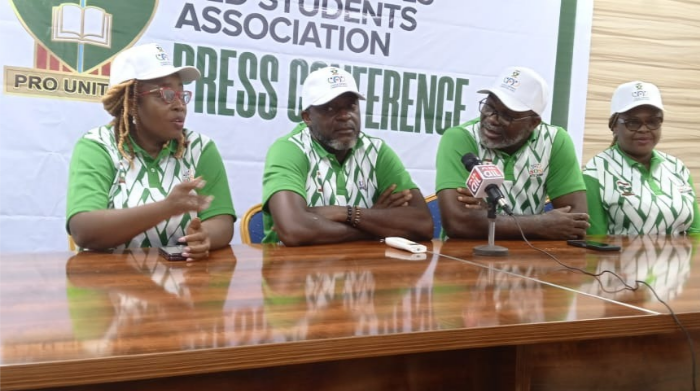USOSA laments falling education quality, backs adoption of smart schools


Michael Magaji, who serves as the president-general of the Unity Schools Old Students Association (USOSA), has expressed concern about the deteriorating state of public education in Nigeria and emphasised the urgent need for reforms, particularly through the implementation of the Smart School model.
Speaking at the 44th USOSA Plenary Session hosted in Enugu, Magaji pointed out the absence of essential facilities in numerous public schools and labeled the situation a “national emergency.”
“Let’s be honest. The present state of public education in Nigeria is not where it should be. According to UNESCO, over 20 million Nigerian children are currently out of school. That’s not just a statistic—it’s a generation at risk,” Magaji stated.
He applauded the Enugu State Government for spearheading efforts in digital and smart education, referring to the initiative as a courageous and insightful move toward reviving public education across the nation.
“In just eleven months since USOSA held an Education Summit on digital learning and transformation for the 21st-century child, we are already seeing action. The move from strategy to practice in Enugu is commendable,” he said.
Magaji expressed appreciation for Enugu State Governor Peter Mbah, describing his efforts as “raising the stakes in education service delivery,” and encouraged other states to adopt the smart school framework pioneered in Enugu.
He pointed out that smart schools foster an engaging and inventive learning atmosphere, where students gain essential abilities like critical thinking, digital competency, and innovative problem-solving—skills that are vital in the modern era.
“This new pivots from traditional one-way teaching to a more dynamic, student-centered learning model. It’s not just about learning; it’s about co-creating improved learning outcomes,” Magaji explained.
Highlighting accessibility as a major barrier, he urged for stronger political commitment, deliberate investments, and unified action to unlock the vast potential of Nigeria’s educational sector.
The USOSA leader reiterated the group’s pledge to contribute to the nation’s growth through educational advocacy and collaborative initiatives.
“We will continue to push for smart, impactful education policies at both the federal and sub-national levels. Beyond increased funding, we will also advocate for transparent governance and effective monitoring of educational investments,” he said.
Magaji further appealed to alumni nationwide to play an active role in supporting their former schools, suggesting they should not only give back but also “give forward.”
“Let us adopt schools, mentor students, and fund innovation labs in our alma maters. Alumni must be part of the solution,” he added.
Chidiebere Onyia, the Secretary to the Enugu State Government, who spoke on behalf of Governor Mbah, said that the smart school project was at the core of the governor’s broader goal to revamp the state’s economy.
He observed that although some people had initially dismissed the governor’s bold objectives, such as growing the state’s GDP from $4.4 billion to $30 billion, as impractical, results are now becoming visible.
“What we are doing goes beyond the typical 4–8-year political cycle. These smart green schools are part of a long-term strategy to build a learning culture that supports economic growth, reduces unemployment, and enhances security,” Onyia said.
The 44th USOSA plenary brought together former students, government representatives, educators, and technology innovators to explore lasting strategies for enhancing education in Nigeria.








